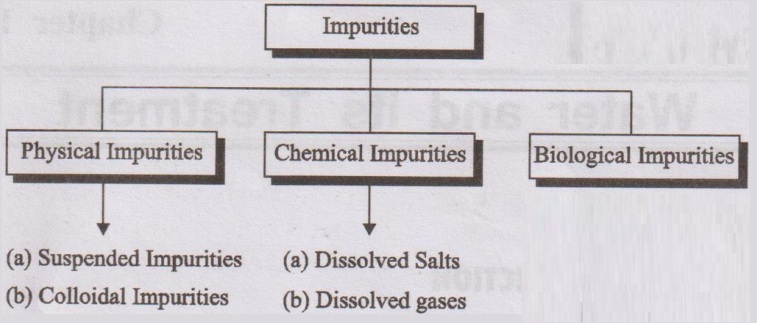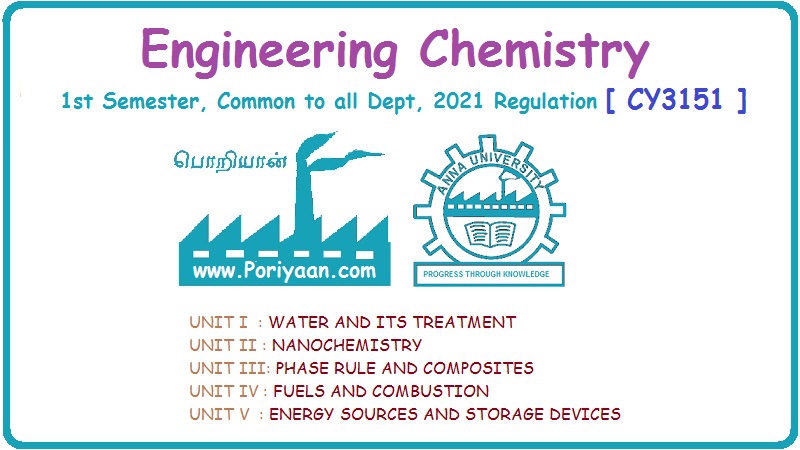Engineering Chemistry: Unit I: Water and its Treatment
Types of Impurities in Water
Water is the most important compound for the existence of human beings, animals and plants. About 80% of the earth's surface is occupied by water.
Unit - I
Chapter 1
Water and
its Treatment
INTRODUCTION
Water is the most important compound for the existence of human
beings, animals and plants. About 80% of the earth's surface is occupied by
water. The main sources of water are
(i) rain
(ii) rivers and lakes (surface water)
(iii) wells and springs (underground water)
(iv) sea water.
Among the above sources of water, rain water is the purest form of
water but it is very difficult to collect whereas sea water is the most impure
form. So, surface and underground water are normally used for domestic and
industrial purposes. Such water must be free from undesirable impurities. The
process of removing all types of impurities from water and making it fit for
domestic or industrial purposes is called water treatment. Before treating the
water, we should know the nature as well as the amount of impurities.
TYPES OF IMPURITIES IN WATER
The impurities present in the water may be broadly classified into
three types.

1. Physical impurities
(a) Suspended impurities like sand,
oil droplets, vegetable and animal matter, impart turbidity to water.
(b) Colloidal impurities like
finely divided silica, clay and organic waste products impart colour, odour and
taste to water.
2. Chemical impurities
(a) Dissolved salts like
bicarbonates, sulphates and chlorides of Ca and Mg and carbonates, bicarbonates
of Na and K.
Dissolved Mg and Ca salts in water cause "hardness",
whereas alkali salts (bicarbonates, carbonates of K and Na and bicarbonates of
Ca & Mg) make the water “alkaline".
(b) Dissolved gases like O2,
CO2, H2S, SO2 make the water “acidic". So
they accelerate the rate of corrosion.
3. Bacterial impurities like
fungi, bacteria and other microorganisms cause diseases.
Engineering Chemistry: Unit I: Water and its Treatment : Tag: Engineering Chemistry : - Types of Impurities in Water
Related Topics
Related Subjects
Engineering Chemistry
CY3151 1st Semester | 2021 Regulation | 1st Semester Common to all Dept 2021 Regulation
